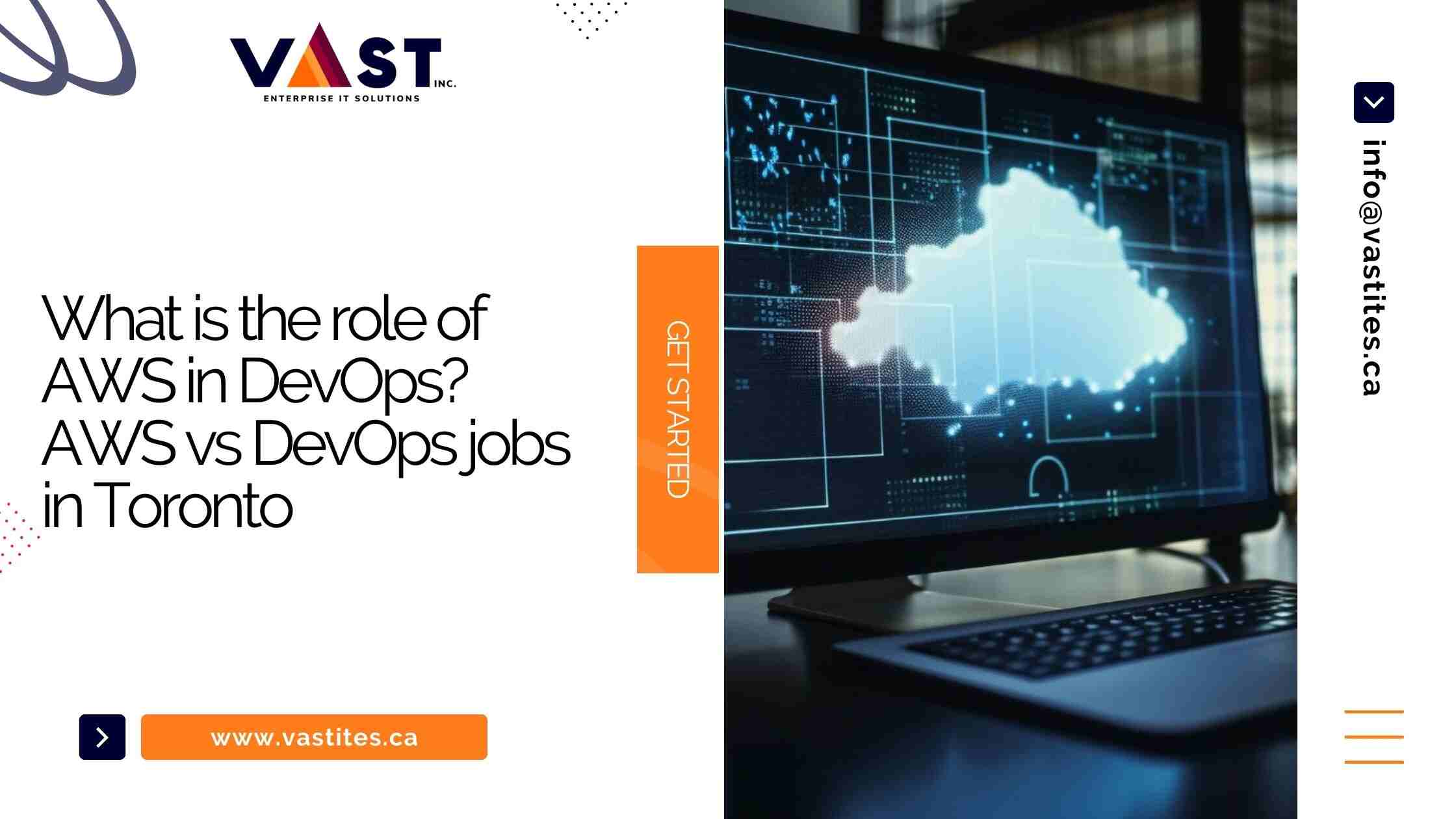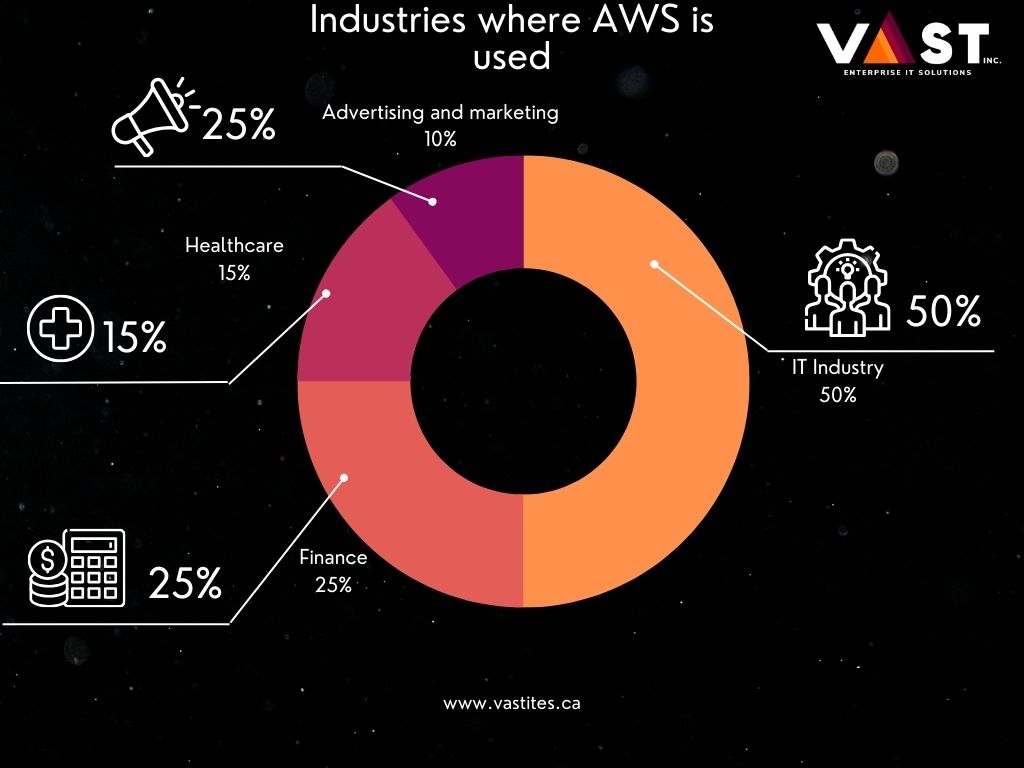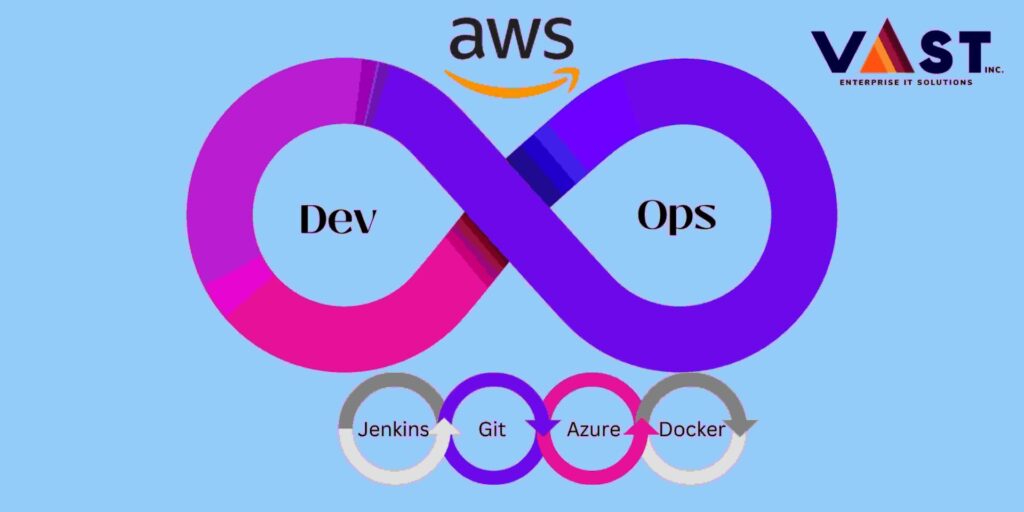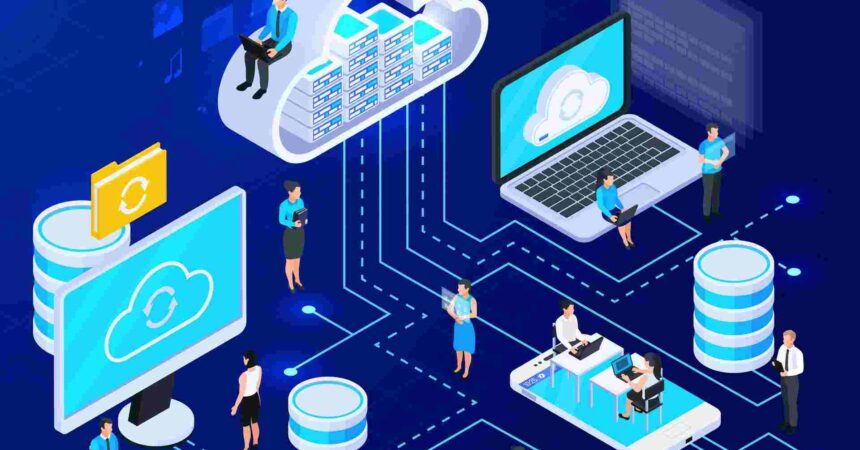
- September 20, 2023
- vastadmin
- 0
Introduction
In the rapidly evolving landscape of technology, two terms that have been frequently buzzing are AWS and DevOps. These processes are essential for organizations to develop, deploy and manage applications. But what exactly is the role of AWS in DevOps, the difference between AWS and DevOps? We will also be discussing about the AWS jobs DevOps jobs and their prospects. This blog’s aim is to demystify these questions while providing you the insight into why AWS is important and why DevOps and AWS complement each other.
What is AWS
Amazon Web Services, also widely known by its acronym AWS, is part of Amazon’s umbrella of services and is one of the market’s major cloud computing service providers. They provide more than 170 services to organizations of sizes varying from small start-ups to Fortune 500 companies. Its diverse platform is home to 100,000+ partners from 150+ countries. 90% of Fortune 100 companies utilize AWS services.
AWS provides a wide range of services like storage, computing, IoT, security, etc. It is known for its pay-as-you-go model, which means you need to pay for how much you have used the services. These services are highly scalable and reliable with affordable pricing.
To know more about What is AWS, continue reading →
Why AWS is important
As discussed above, AWS captures the largest market cap in terms of cloud computing and is relied upon by major companies. Here is why AWS is important for business:
- Scalability: AWS provides features like auto-scaling and load balancing which helps your applications to scale up or down. You can also easily access to data stored and work on it when you want.
- Cost efficient: AWS services are affordable plus high-performing. With its pay-as-you-go model, you only pay for the services you use and storage that you take up.
- Easy to use: AWS is a user-friendly model that allows you easy access to your application. The operating system provides an interface that is already known to users.
- Flexible: AWS provides a virtual environment where you can customise operating systems, programming language, web application platform and database according to your needs, making it easy to migrate the existing applications while preserving options for building new solutions.
- Secure: Amazon is a renowned brand and its most important concern is customer security. It follows an end-to-end structure to safeguard your applications and software.
Where is AWS used?
Any industry or niche can use AWS because it is volatile. Any industry that deals with huge databases is where AWS used.
Here is the list of industries where AWS is used:
- IT industries: IT companies hold the largest share of the AWS customer base. These types of industries need agile solutions for their applications and software.
- Advertising and marketing: these companies are seeking to improve their operations across various platforms. AWS provides services like Customer and Audience management, data privacy, Ad analytics and management and Digital Customer experience, making it a one-stop solution for digital solutions.
- Financial Services: AWS is the crossroad for collaborating Finances and Technology, accelerating optimization and operation through its wide range of services – while being up-to-date with the constantly changing regulations.
- Healthcare: AWS services are a game changer in the field of healthcare. It provides unique solutions like AWS HealthScribe, AWS HealthLake, AWS HealthImaging, and AWS HealthOmics.

Busting Myths about AWS
- AWS is a very expensive service: This is the most common myth about AWS. Setting up your on-premise server, and adding up its maintenance charges for a small amount of traffic on your website can cost a fortune which is not worth it. But on the contrary, AWS is a very affordable solution. It saves you from the hassle of setting up on-premise. Additionally, it follows the pay-as-you-go model, which means you only need to pay for the services that you have used.
- AWS is only used for cloud storage: AWS is much more than just cloud services. It is at this stage where it is ever evolving. It has made contributions in industries like Healthcare, Education, Commerce, etc., but introducing niche-specific services. One of the major services by AWS is web hosting which is adopted by major companies.
- AWS is not safe: AWS is one of the most secure platforms to work on. In fact, it is more secure than on-premise solutions. It provides robust security and compliance. It gives you full control over your data in real-time.
- AWS is only for large enterprises: AWS offers scalability and supports demanding systems which is needed by varying sizes of organizations. AWS has a startup program called AWS Active, which helps to leverage small businesses whenever necessary with minimum cost.
Is AWS required for DevOps?
DevOps is a practice that collaborates with Development and Operations. Its main aim is to make the deployment faster and smoother, hence decreasing the time to market. AWS is not required for DevOps, but it is advised to practice them together.
AWS provides a wide range of tools and services that support DevOps practices. You can use different cloud platforms or on-premise while practising DevOps. Similarly, DevOps can be practised without AWS.
This decision depends on the specific needs of the organization. If you need flexibility and agility then AWS is the answer, and if you need development and deployment then DevOps is the best solution for you. Thus, DevOps can be performed without AWS. Here are the list of the best tools to learn DevOps:
- Jenkins for automation
- Git for version control
- Azure DevOps tools
To learn more about the best tools to learn DevOps, Continue reading →

What is the role of AWS in DevOps?
Although AWS is not required for DevOps, it is advised to practice it together. Let’s discuss what is the role of AWS in DevOps.
- Easy to set up and ready for the go: AWS services are readily available if you already have an AWS account. There is no requirement to download the software or set it up.
- Managed Services: As discussed, you do not need to set up anything, giving you the advantage of decreased time to market.
- Scalability: From a single application to thousands of applications, you can manage all on this one single platform. These are flexible and easy to manage.
- Programming: You can interact with AWS services through the Command Line Interface, APIs, or SDKs. Additionally, you can design and set up your entire AWS infrastructure using AWS CloudFormation templates written in a declarative language.
- Large Partner Ecosystem: AWS offers a vast network of partner integrations, allowing you to use your favourite third-party and open-source tools to create comprehensive solutions.
- Reduces the cloud complexity, thus achieving automated infrastructure.
- Security: AWS is well known for its security. Combining AWS and DevOps can make your applications more secure with the automation of repeated tasks.
- Reduced Errors: AWS and DevOps are types of platforms that are built in such a way that automates the repeated tasks that were done manually, thus reducing the possible human or technical errors.
Thus, the role of AWS in DevOps is to make the processes of applications increase the velocity and make it agile.

Are AWS and DevOps the same?
No, DevOps and AWS are not, but they are complementary to each other.0020 DevOps is a practice that collaborates between Development and operations. Whereas, AWS provides cloud computing solutions that involve accessing various on-demand services like data storage, processing power, etc. But it is true that both are made for quick development of applications and their proper management.
Difference between AWS and DevOps
There is a difference between AWS and DevOps even though they are complementary to each other.
Here are the key differences between AWS and DevOps:
- AWS is a cloud computing services provided by Amazon. Whereas, DevOps is a practice to collaborate between Development and Operations.
- There are different tools for both AWS and DevOps. AWS uses tools like Amazon E2C, Amazon RDS, Amazon IAM, etc. whereas DevOps uses tools like Git, Jenkins, Docker, etc. You can learn DevOps tools easily and apply it.
- AWS can be part of DevOps. But DevOps doesn’t necessarily need AWS.
- AWS provides the hardware and software required to build, deploy and manage applications. DevOps focuses on deploying the software faster and reducing the time to market.
DevOps vs. AWS jobs: which is better?
As we discussed, these services are a core part of any application or software. But these two things cannot really be possible to be performed by a single person. There is a great demand in the market for AWS and DevOps jobs in Toronto. Let’s discuss the prospects of both, AWS jobs and DevOps jobs:
- AWS jobs deal with scaling cloud computing infrastructure with end-to-end privacy and compliance. DevOps jobs in Toronto deal with constructing and building unique development tools and infrastructure.
- AWS jobs include security and protections in its services and provide documentation on how to use the AWS services. DevOps jobs require to examine the ways to automate tasks and enhance the deployment

Conclusion
As we have explored the landscape of AWS and DevOps, we have learnt that these are not the same but are highly complementary to each other. AWS provides robust and flexible cloud services while DevOps helps to make these processes agile and streamline the process. AWS and DevOps are a really good duo when integrated, making the application highly robust. These terms are new buzzwords in the market, hence the AWS and DevOps jobs are one of the high demanding jobs right now. Whatever your industry may be, AWS and DevOps are essential parts of unlocking your organization’s full potential. what is role of AWS in Devops
